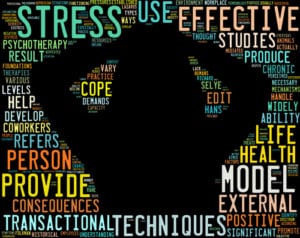Recovery can be a transformative journey that requires dedication, patience, a learning perspective, and so much more. For people that embark on this journey, so much growth occurs. There are many aspects to recovery, such as learning more about addiction and its effects, becoming closer in mind and body, learning more about oneself, and so much more. Another component of recovery that everyone must go through is learning one’s triggers and how to combat them. For some, this may mean simply saying “no” to someone – for others, this may mean leaving a place that is triggering them to engage in their previous addiction.
When someone is recovering, many things can influence someone to engage in their addiction. The ways in which a person can tell if something is triggering them, as explained by The Recovery Village, are: physical symptoms such as tightness of the stomach, feeling nervous or “jumpy” and psychological symptoms such as increase thoughts of how good it would feel to use the drug again, remembering times of using in the past, planning how to go about getting the drug or substance, and feeling like the person “needs” the drug.
The following are common relapse triggers that people experience: emotions such as anger, loneliness, guilt, sadness, feeling stressed, feeling over-confident, social situations that remind the person of using, people that the person used to engage in addictive behaviors with, reminiscing about previous drug use, places where the drug or substance is available, isolating oneself, mental illness such as anxiety, depression, etc., and physical illness. This list is not exhaustive, but provides top relapse triggers for people in recovery. Television can also trigger someone if it brings up any of the previously mentioned emotions. Commercials and movies do not have to explicitly show the drug or substance – scenarios that make a person sad could also trigger them to want to use again.
In a recent study found in the Yale Journal of Biology and Medicine, rules are provided to help people stay successful in recovery:
- Change your life (recovery involves a new lifestyle that does not include the addiction anymore)
- Be completely honest
- Ask for help
- Practice self-care
- Don’t bend the rules
These are excellent guidelines for anyone who is wanting to lead their best life of recovery. By following these rules dedicatedly, we are ensuring our health and success. We are placing our own happiness and well-being as top priority, leading us on a successful journey to bettering ourselves.
Residential treatment programs give you the time you need to focus on healing. Avalon Malibu is one of California’s only certified primary mental health treatment facility providing trusted programs with trusted results. For a confidential assessment and more information, call us today: 888-958-7511











